Ethics of a Digital Age in Young Adult Literature
Amy Piotrowski
Digital tools have changed how we live and communicate as well as literacy teaching and learning. I remember when my family got our very first home computer, and now I can’t imagine life without my smartphone. Email, video calls, and streaming movies are all part of my regular routine. I even teach courses through video conferencing to students in different locations hundreds of miles from each other. Today’s technologies, including internet connectivity and artificial intelligence, claim to be able to improve our lives. But are we asking ourselves whether and how we can use these technology tools ethically? We would be wise to be critical about our use of digital tools.
Digital tools must be employed for humanity’s good rather than evil. Otherwise these tools become what Safiya Umoja Noble calls “algorithms of oppression.” Digital technologies are not neutral - they are tools developed by humans with human biases. W. Kamau Bell shows in a recent episode of CNN’s series United Shades of America how inequities in the design and use of digital tools can enable techno-racism. Digital technologies can enable harm to marginalized communities.
The NCTE Definition of Literacy in a Digital Age calls on teachers to “participate effectively and critically in a networked world” and to “examine the rights, responsibilities, and ethical implications of the use and creation of information.” One way to examine our responsibilities in a digital age is through young adult science fiction depicting different technologies and how these technologies might be used in the future. Young adult literature can spark much needed critical conversations in the classroom. As Lindblom, Rivera, & Radice (2020) point out, “Literature possesses the power to imagine a future and, in so doing, engage readers in questions of ethics in otherwise unthought-of scenarios. Through reading and critical discussion, English teachers offer students emotional and social questions, enabling them - we hope - to face their future dilemmas with intelligence, empathy, and autonomy.”
Here are some novels that can spark discussions about the ethics of technology:
Titus and his friends, like most people in Anderson’s future society, all have the feed - an implant in the brain that connects the user online without the need for a device. With this device, one can go online, chat, and purchase items. Advertisements can come through the feed into one’s vision based on where they are. During a spring break trip to the moon, an old man, who clearly dislikes the feed, causes Titus and his friends’ feeds to malfunction. One of the other teens affected by the old man’s feed hack is a girl named Violet. The novel follows Titus and Violets’ relationship as Violet rebels against the feed.
This novel explores how instant and constant connectivity can result in disconnection. Rather than bringing people together, the feed provides non-stop stimulation that leaves people in a disjointed existence. Using the feed for advertising and buying things is valued more than the humans who use the feed. The feed ends up alienating people from each other.
In the aftermath of a devastating war, Eve Carpenter lives with her grandfather in what is left of California, a place known as Dregs. She pilots machina (a machine that requires a human operator) in WarDome fights that pit machines against each other. During one fight, she takes down a logika (a machine that operates using artificial intelligence) by just looking at it. She flees home to avoid groups that see this ability as deviant. On the way, she sees a plane crash and, rushing to the wreckage, discovers that the pilot is not a human, but a lifelike - a rbot made to be just like a human. Lifelikes were banned years ago after they led an uprising that killed their creator and his family. What is this lifelike doing in Dregs?
Kristoff’s series asks what might happen if artificial intelligence overtakes human abilities and then rebels against their makers. The lifelikes are supposed to be bound by Asimov’s Three Laws of Robotics, but when they are not bound by the Three Laws, they turn to Milton’s Paradise Lost to justify their uprising. And when the lifelikes find out about Eve, her life is in danger.
Shusterman’s trilogy depicts a future society where artificial intelligence has solved almost all of humanity’s problems. There is no illness or hunger, and any injury can be healed. Death isn’t a part of life anymore, thanks to the benevolent A.I. known as the Thunderhead. While teens Cita and Rowan work through their apprenticeship to become scythes, the appointed administrators of death to cull the herd of humanity, the Thunderhead becomes concerned about corruption among the scythes. The problem is that the scythedome is the one place the Thunderhead must stay out of.
I find the Thunderhead to be the most interesting character in the series. The Thunderhead runs the world wisely and says it wants to do what is good for humans. It sees itself as on the ethical high ground, even as it uses loopholes around the laws governing its behavior in order to influence events that it cannot directly intervene in. Throughout the series, people seem to follow the Thunderhead’s guidance without question. People accept that what the Thunderhead says and does is what is for the best, but is that the case? I am left wondering how humans make choices and act on their own agency and how A.I. can shape human behavior.
In the future, everyone connects online not through a smartphone, but through a set of smart glasses called the NeruoLink. On the NeuroLink, the most popular pastime is a video game called Warcross. A teen hacker named Emika Chen finds a way to hack into the opening game of the annual Warcross tournament, an event people all over the world watch. When Emkia starts getting calls from the NeruoLink’s CEO, Hideo Tananka, she thinks she’s in big trouble. Instead, he offers her a job - find out who is behind a plan to disrupt the Warcross tournament.
Emika ends up in the middle of a plot to use the NeuroLink to control the world’s population so that people cannot commit crimes. Arguably, this may sound like a laudable end. But Emika cannot support this, calling removal of people’s free will, including their free will to commit criminal acts, “taking away something that makes us fundamentally human!” For Emika, free will is a key part of what it means to be human.
Lena Hayes is the daughter of the leaders of CyberCorp, a company that makes cybernetic limbs as well as androids. When Lena loses her arm in a car accident, she gets a cybernetic arm from CyberCorp. She hates the idea of the new arm and its artificial intelligence. She hates it even more when the children of CyberCorp start turning up dead. Lena knows that she was sleepwalking at the time of the murders. Did she commit these horrible killings?
This series is a hybrid of science fiction and mystery. Lena is skeptical of technology, yet finds herself with a cybernetic arm. She has serious doubts about the new androids her parents’ company is about to sell. The first book sets up more mystery in the second book, which was published last month. The third book in the trilogy will be published in the fall.
Hard Wired by Len Vlahos
Quinn is a fifteen year old boy who has fun playing video games with his friends, has a crush he doesn’t quite know what to do about, and mourns the loss of his father. Or at least that’s what Quinn thinks until he sees something strange in the video messages his father left for him, and then his father reappears. Quinn is told that he isn’t a boy, but rather an artificial intelligence. The man he believed was his father is really a university professor running the experiment that is Quinn. Quinn sets out to determine if he can run his own life, without his father.
Quinn wonders who he is and how he can connect with others. He tries to make friends with other computers as well as humans. He sues his father for the chance to make his own decisions. Vlahos’s novel asks if A.I. robots should have rights.
Lindblom, K., Rivera, A., & Radice, M. (2020). Future Perfect? Exploring Artificial Intelligence through Young Adult Literature. English Journal, 109(6), 73-80.
| Dr. Amy Piotrowski is an assistant professor of English education at Utah State University. She teaches undergraduate courses in English education and secondary education as well as graduate courses in literacy. Her scholarly interests focus on digital literacies, young adult literature, and teacher education. Before going into teacher education, she taught middle school Language Arts, high school English, and college composition in Texas. Her chapter “Flipping the Teaching of Young Adult Literature with Preservice Teachers” was published in the book Towards a More Visual Literacy: Shifting the Paradigm with Digital Tools and Young Adult Literature. |
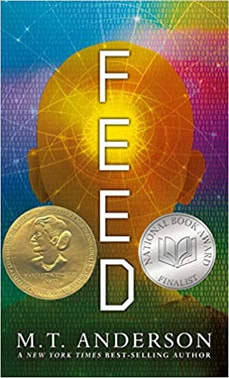
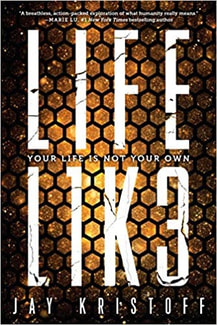
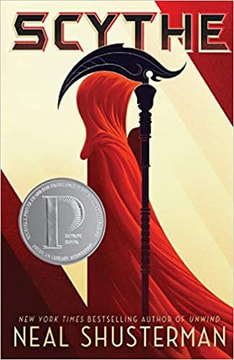
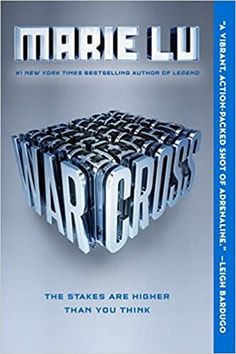
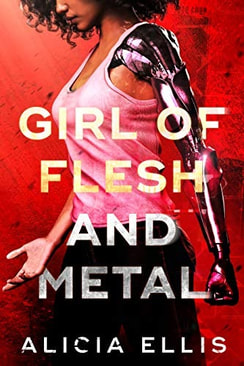
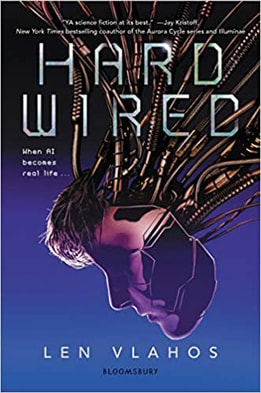

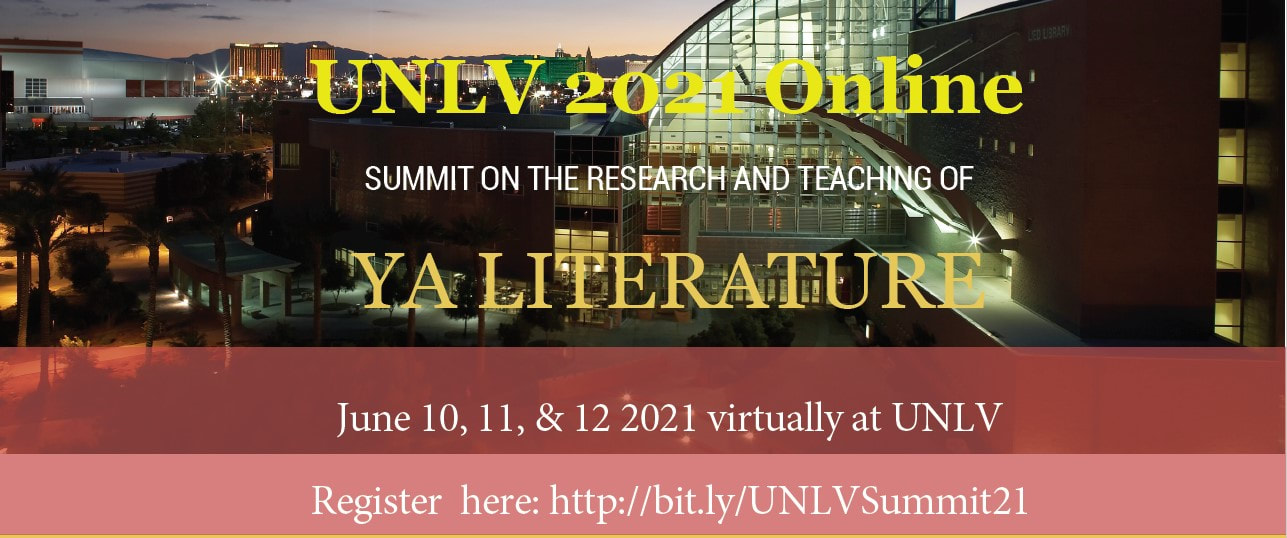

 RSS Feed
RSS Feed